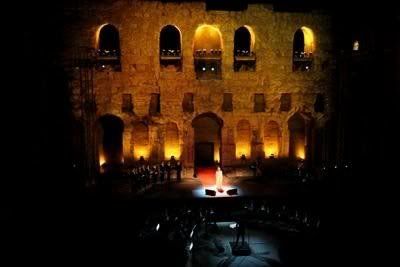I also liked his comprehensive description of Mintoff's vision for the Mediterranean, which was shared by his principal ideological opponent in Malta: Prof. Peter Serracino Inglott. If only the rebels for democracy in the Arab world were to find common cause with the growing opposition to financial capitalism in Southern Europe! How I resent the obstacles which have been imposed to prevent this from happening, not least through the manipulation of our common Judeo-Christian-Islamic religious heritage.
 |
| Imagine what a fantastic civilization could be developed here. |
Here is a lengthy quote from this article, which I found particularly inspiring: 'After a while, we changed into dry clothes, and he led me up to a high ridge commanding a spectacular view of the ocean. For more than an hour, as we walked the ridge, Mintoff talked. He did not speak about America, Europe, the Middle East, or even Maltese politics. Nor did he tell stories about Malta’s past or his own career. Looking out at the blue-green sea, Dom talked knowledgably and with searing passion about the Mediterranean region. He painted a picture of a vast, multi-cultural, society encompassing North Africa, the Middle East, the Balkans, and southern Europe, dedicated to peaceful co-operation and social justice.
“The Mediterranean must become a nuclear-free zone,” he said (or, perhaps, prophesied). It must also become a clean air and clean water zone, a women’s rights/ human rights zone, a zone of economic equality, and a zone of peace." “You are talking about very different civilisations cooperating, aren’t you?” I asked. “What would Sam Huntington say?” (Samuel Huntington’s famous article predicting an inevitable ‘clash of civilisations’ had been published months earlier and was being talked about everywhere.) “Yes,” he replied, “that’s exactly what I’m talking about. Huntington is wrong. This was once part of a great Mediterranean civilization,” he said, waving at the invisible lands across the sea. “It can be again.”




